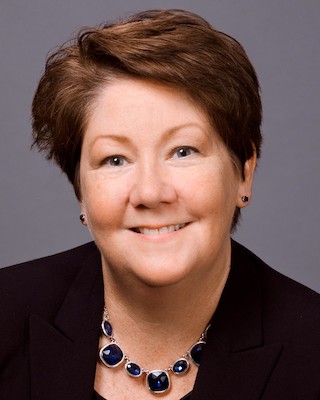
…Calling you—to reinvent your firm. Now.
By CPA Trendlines
You may be missing a rare appearance of opportunity in the pandemic that’s stymying everyone else, says Eileen J. Kennedy in a new CPA Trendlines 30-minute Flash Briefing.
PLAY THE VIDEO or DOWNLOAD THE PODCAST: How to Dazzle Clients in the COVID Age: Creating Customized Client Experiences
In “Creating Customized Client Experiences in the Age of COVID-19,” Kennedy rolls out a host of ideas and insights to use the pandemic to:
- impress current clients,
- improve service,
- leverage feedback to fuel growth,
- open opportunities,
- run meetings to maximum effect,
- overhaul your planning process in accordance with reality,
- gain referrals, and
- win new clients.
A Paradigm Shift
The goal is to achieve a paradigm shift—a whole new way of seeing your business world, treating your clients, and growing your firm.
She starts by saying, “Today we are going to turn everything upside down.”
The first thing to shift is your perspective, she says. Look at your firm and your clients from your clients’ perspective.
Your imminent radical change, Kennedy warns, can be a shock to clients. If you’re now treating them differently than the way you treated them in January, they will wonder about the cause of the change.
Covid-19, she says, should be the real and perceived cause of the change. In a sense, it’s your excuse for changing radically.
Covid, of course, has changed just about everything. Businesses are in situations they’ve never been in before. Their CPA firms need to change to accommodate their clients’ new needs.
Two Disruptions
Kennedy identifies two disruptions that work in the CPA firm’s favor.
- Most businesses needed the assistance of a CPA to deal with PPP loans. Firms that made the effort to help, even under the duress of the pandemic, are appreciated for going that extra mile, in many cases at no cost to the client. The gesture fostered a new kind of relationship between firms and clients. It’s a caring relationship.
- To survive the economic downturn, recover business health, and again hope for longterm growth, clients need a lot of help. Any CPA who cares—really cares—about clients will strive to go beyond cranking out tax returns and financial statements. The challenges clients face are an opportunity for CPAs to form that new, caring relationship.
To illustrate this paradigm shift in the CPA-client relationship, Kennedy quotes Theodore Roosevelt, who said, “No one cares how much you know until they know how much you care.”
As CPAs start to wrap their heads around this paradigm shift, Kennedy says they should ask themselves some existential questions:
- Why do you do what you do?
- What do you get (and hope to get) from what you do?
- What are your life’s goals and dreams?
- What do you really want for your clients?
Kennedy doesn’t answer those questions. She can’t. They are questions for each individual.
Regardless of the answers, the questions themselves are yet another opportunity to develop a new relationship with clients. How? By having the clients answer those very same questions.
New Quarters
Shifting the paradigm is a good time to shift a different concept—that of the quarters into which we divide the year. When you think about it, the traditional ends of March, June, September, and December are arbitrary and meaningless dates. They have no functional connection to the events and periods of a year.
Kennedy’s quarters are far more rational. They are based on functional reality.
- The first quarter is January 1 to April 15—a special time for CPAs.
- The second quarter is April 16 to the end of spring, traditionally Memorial Day.
- The third quarter is summer, June 1 to September 1. Everything is different in the summer.
- The fourth quarter starts in September when things change once again to accommodate school, regardless of whether you have kids that age.
These quarters aren’t for financial timelines, of course. Rather, they are for scheduling relevant activities, such as
- Organizing clients by priority and planning how to serve them.
- Planning conferences, CPE, networking, and other activities.
- Taxes and financial planning.
- Planning activities that relate to Covid.
- Seeking referrals.